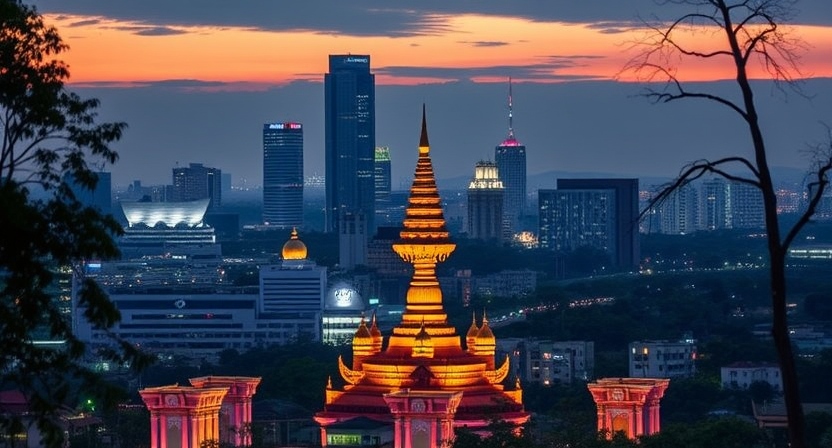As Southeast Asia continues to attract growing international capital, Cambodia is emerging as a key player in the region’s economic landscape. With the region increasingly viewed as the next global growth center, Cambodia is poised to lead the way. According to the International Monetary Fund, Cambodia is projected to achieve a 6.1% growth rate in 2024, positioning it as a regional leader. This raises an important question for international financial experts.
One of the key factors in Cambodia’s rise as a financial hub is its open foreign investment policies. Unlike many countries in Asia, Cambodia does not impose foreign exchange controls, making it an attractive destination for international capital. This openness allows investors to move capital in and out of the country with confidence, supporting the flow of investments and boosting Cambodia’s financial market potential.
Southeast Asia is rapidly becoming the next global economic powerhouse, and Cambodia is emerging as a top choice for foreign investors. The country’s political stability, youthful workforce, low labor costs, and open foreign investment policies are driving its transformation. From textiles to high-tech industries like auto parts, photovoltaic materials, and innovation-driven sectors, Cambodia’s manufacturing landscape is evolving.
With over eight consecutive years of GDP growth exceeding 7%, Cambodia is one of the fastest-growing economies globally. Its favorable geographic location, role as a transportation hub, and strong economic strategies create the momentum needed to develop into a financial center. Cambodia’s growing financial sector attracts both local and international investors.
Strategic infrastructure development plays a vital role in Cambodia’s path to becoming a financial hub. Cambodia’s position in ASEAN, bordered by Thailand, Laos, and Vietnam, provides access to important global markets. The government has invested in infrastructure projects such as improved roads, railways, ports, and airports, creating a robust logistics network.
The construction of the new Phnom Penh International Airport, designed by renowned British firm Foster and Partners, will further enhance Cambodia’s global connectivity. Projects like the deep-water port in Sihanoukville and the Phnom Penh-Sihanoukville Expressway are set to reduce logistics costs, strengthen international connections, and facilitate financial operations.
Cambodia’s consistent political stability, growing manufacturing sector, and open investment policies make it an attractive destination for both regional and international investors. As infrastructure continues to improve and the government invests in talent and education, Cambodia is well on its way to becoming Southeast Asia’s next financial hub.
With its strategic location, booming economy, and a growing financial ecosystem, Cambodia offers vast opportunities for investors. The country’s progress in areas like digital governance, logistics, and education—combined with the government’s vision—suggests that Cambodia will continue to rise as a key player in Asia’s economic future.

